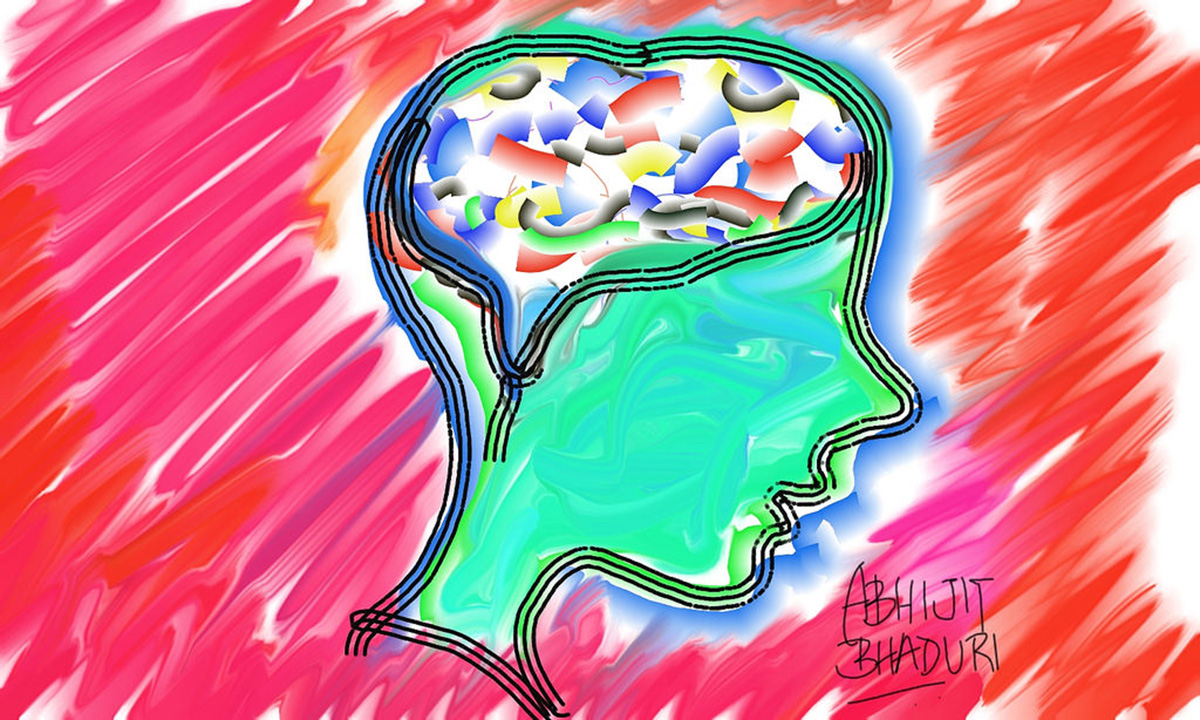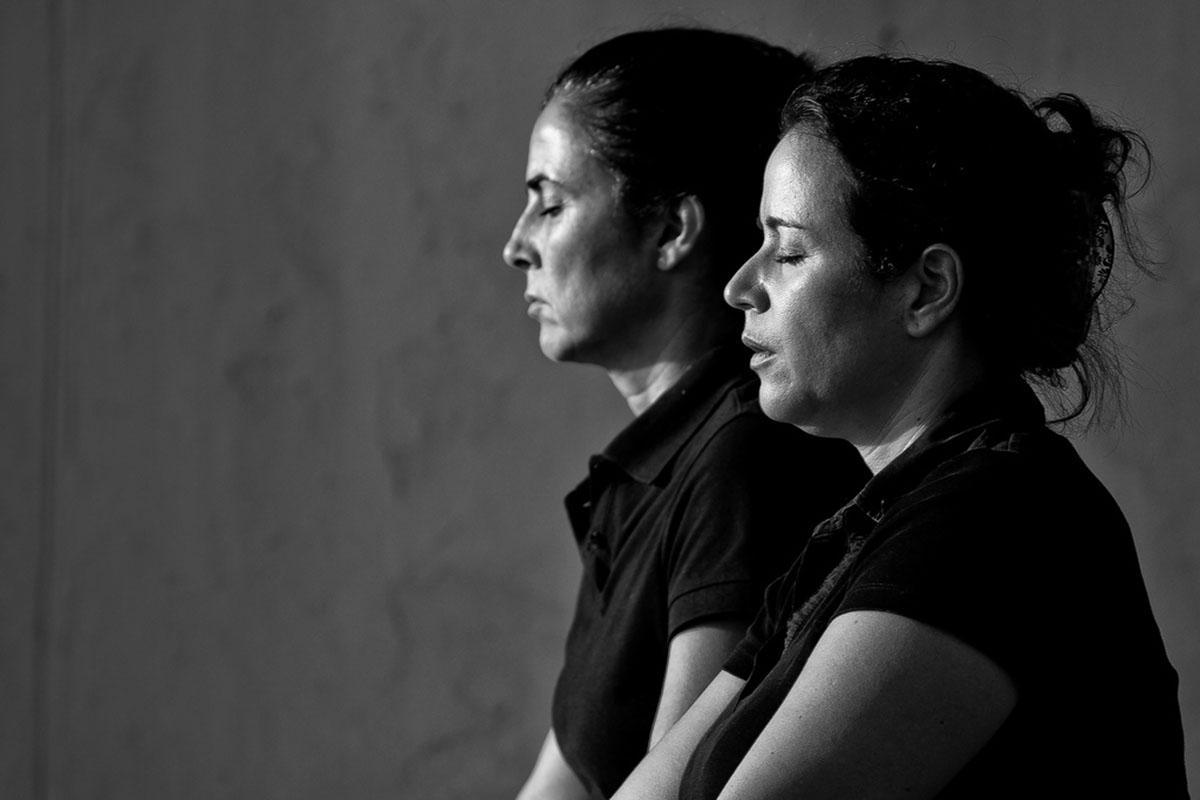When you are getting chemo for cancer, the last thing you want on your schedule is yet another trip to the doctor.
You probably are losing your hair. You don't have any appetite, and you are having to spend hours in the bathroom. You may break out in a horrible rash or mouth sores, and the simplest social contact may put you in danger of a deadly disease. Add to all these problems you may start forgetting where you put your house keys, or failing to pay your bills even when you still have money in the bank, or forgetting to take the pills that are fighting your cancer.

You let your doctor know about the problem, and you get referred not just to an oncologist and a radiologist and a probably an infectious disease specialist and a surgeon, your doctor starts sending you to the psychiatrist. There just has to be a better way to deal with chemobrain.
Reversing Brain Fog with BrainHQ
One approach to reversing the memory loss induced by chemotherapy is a web-based mental rehabilitation program called BrainHQ (formerly marketed as Insight). In both free and subscription versions (linked below), BrainHQ provides daily exercises that help users work on one aspect of brain function. Wednesdays, for example, are "attention day." The free version of BrainHQ for Wednesdays offers four attention exercises, divided attention, target tracker, hawkeye, and visual sweeps, and five challenges, a beginner's brain challenge, faster auditory processing, better memory basics, efficiency for everyday tasks, and brain training for sports and games.
Instead of labeling chemotherapy patients with yet another disease, memory loss, BrainHQ gives it users an opportunity to expand their mental skills in the ways they find helpful and relevant. If you don't need to work on a particular skill, you don't have to. You don't have to do the same drills day after day. There is a different program for every day of the week. But how do we know that the program works?
The Way Brain Training Makes You Feel Is What Counts
A team of researchers affiliated with the University of Sydney in Australia recruited 242 people who had had chemotherapy for cancer and seen a doctor about memory problems. They assigned half of the volunteers to "standard treatment" and the other half to 15 weeks of BrainHQ. The volunteers completed a self-assessment tool called the Functional Assessment of Cancer Therapy Cognitive Function. They were also evaluated for anxiety, depression, and perceived quality of life at the beginning of the program, after 15 weeks of intervention, and six months later.
READ Foods That Improve Your Brain Function
Using BrainHQ for 15 weeks didn't result in lower rates of psychiatric diagnoses. If you were destined for a psychiatric illness requiring hospitalization, BrainHQ would not be enough to prevent that. However, users of BrainHQ had lower levels of anxiety, depression, and fatigue after 15 weeks on the program, and those benefits carried over for at least six months. Even after they weren't using the online rain training program any more, the patients in the BrainHQ group continued to have better quality of life.
What Else Can You Do to Combat Brain Fog After Chemotherapy?
About 70 percent of chemotherapy patients report a loss of cognitive function, or mental sharpness, after they have received chemotherapy. Most medical programs for treating these kinds of symptoms after chemo focus on anxiety, depression, or fatigue, not on having a better working brain. However, cognitive enhancement, the exercises that help you think more clearly, remember words and places and dates, and keep up with your daily life have the indirect effect of relieving anxiety, depression, and fatigue by reducing the kinds of life problems that make dealing with all the side effects of chemo even harder.

One online version of BrainHQ is free (and linked at the end of this article). It's a great place to start if you have brain fog and you don't want to start taking medications for anxiety, depression, and stress. However, there are other interventions that also help the brain work more efficiently:
- Calendars. Just using a calendar (paper or electronic) helps chemotherapy patients keep up with appointments and personal tasks so that they have greater self-efficacy, confidence in themselves, and better mood.
- Spirituality and religion. Any spiritual activity, whether individual or organized, results in better mental functioning and improved quality of life. The scientific studies don't find differences between different religions in terms of their impact on quality of life.
- Walking. There is currently a study of walking as a treatment for women suffering cognitive impairment after chemotherapy for breast cancer. Early data confirm that walking enhances "executive function" (decision making), verbal memory, visual memory, spatial memory, and self-esteem, and relieves anxiety and depression. In the study, women are asked to walk 10 minutes a day five days a week and build up to 30 minutes a day five days a week. Researchers believe that walking with a pedometer will give the women more satisfaction in the activity.
READ 11 Reasons to Start Walking Now
- Correcting obesity. Weight loss is not always a good thing in people who have cancer. However, obesity interferes with the brain's ability to use adiponectin to create new pathways after exercise. Losing weight, under a doctor's guidance, increases sensitivity to adiponectin which in turn helps the hypothalamus create new memories which in turn increases cognitive function and quality of life.
- Successfully dealing with fear. Confronting fears when you don't have the tools to deal with them isn't good for your mental health or your brain power. However, eliminating fear with knowledge and experience enables your brain to preserve the new pathways needed for learning and change. Getting as much useful information as you can, getting the answers you need, and getting the doctor to do what you believe you need done can enhance your mental sharpness.
If you are having trouble with short-term memory, one of the best possible interventions is a brisk walk around the block. Of course, what you experience as "brisk" will change after you have had cancer chemotherapy. Anything that gets you moving, even if it is just out of bed or out of your chair, will also help with recall, judgment, and the speed at which you process information. And these improvements in your brain power can help you avoid the situations that complicate your life as you recover from cancer.
- Victoria J. Bray, Haryana M. Dhillon, Melanie L. Bell, Michael Kabourakis, Mallorie H. Fiero, Desmond Yip, Frances Boyle, Melanie A. Price, and Janette L. Vardy. Evaluation of a Web-Based Cognitive Rehabilitation Program in Cancer Survivors Reporting Cognitive Symptoms After Chemotherapy. DOI: 10.1200/JCO.2016.67.8201 Journal of Clinical Oncology - published online before print October 28, 2016.
- Photo courtesy of mediocre2010: www.flickr.com/photos/53272102@N06/27648314436/
- Photo courtesy of mediocre2010: www.flickr.com/photos/53272102@N06/27648314436/
- Photo courtesy of hernanpc: www.flickr.com/photos/hernanpc/8024393669/


Your thoughts on this